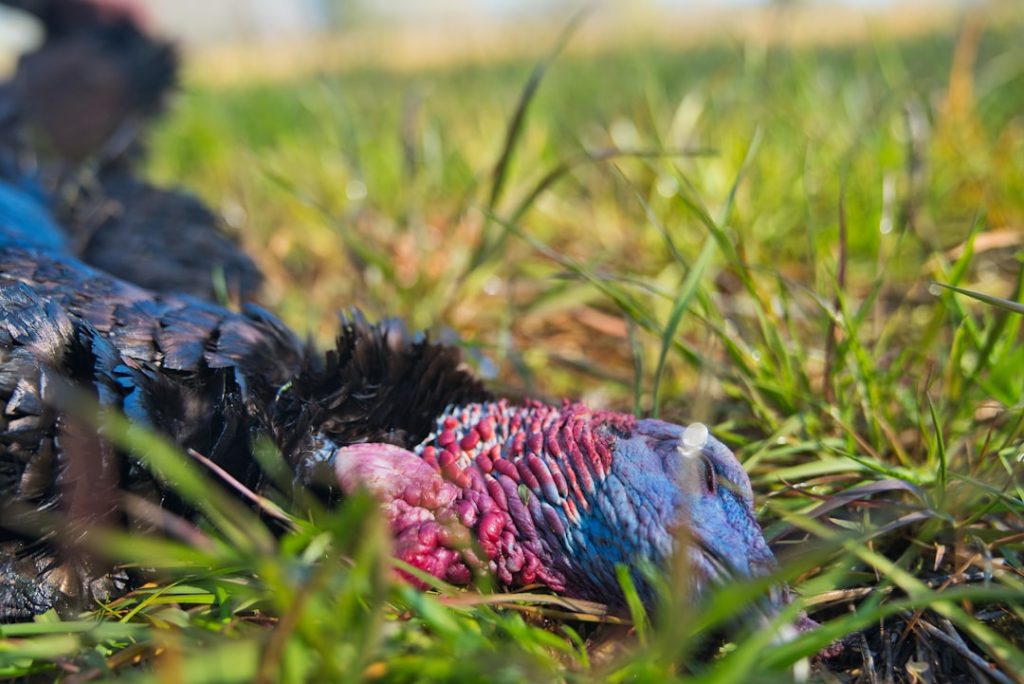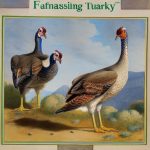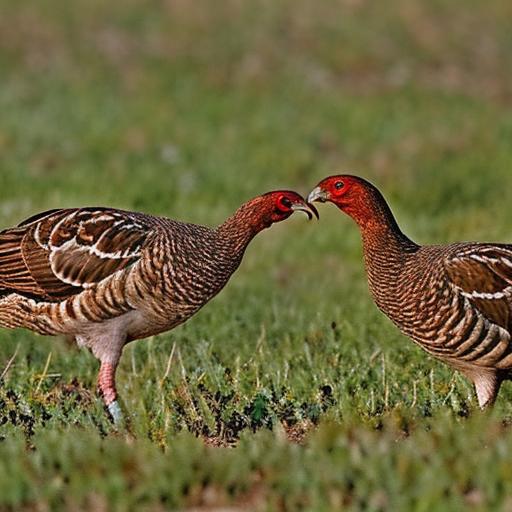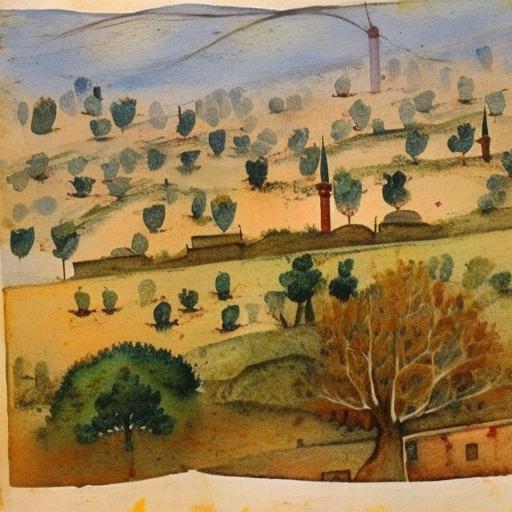Turkey breeding season in Michigan is an important time for wildlife enthusiasts and conservationists alike. The state of Michigan is home to a diverse range of wildlife, including the wild turkey. The breeding season, which typically occurs in the spring, is a critical time for the survival and conservation of these magnificent birds. During this time, turkeys engage in a variety of behaviors, including courtship displays, mating rituals, and nest building. Understanding the natural breeding cycle of turkeys and the factors that affect their breeding success is essential for conservation efforts and the overall health of the turkey population in Michigan.
Table of Contents
- 1 Understanding the Natural Breeding Cycle of Turkeys
- 2 Factors Affecting Turkey Breeding in Michigan
- 3 The Importance of Turkey Breeding for Conservation Efforts
- 4 Tips for Observing Turkey Breeding Behavior in Michigan
- 5 Conservation and Management Efforts During Turkey Breeding Season
- 6 The Significance of Turkey Breeding Season in Michigan
- 7 FAQs
- 7.1 What is the turkey breeding season in Michigan?
- 7.2 Why is the turkey breeding season important?
- 7.3 How do turkeys behave during the breeding season?
- 7.4 Are there any regulations or restrictions during the turkey breeding season in Michigan?
- 7.5 What should I do if I encounter turkeys during the breeding season?
Key Takeaways
- Turkey breeding season in Michigan typically occurs in the spring, from late March to early May.
- Understanding the natural breeding cycle of turkeys is crucial for conservation and management efforts.
- Factors affecting turkey breeding in Michigan include habitat loss, predation, and weather conditions.
- Turkey breeding is important for conservation efforts as it helps maintain healthy populations and genetic diversity.
- Tips for observing turkey breeding behavior in Michigan include being patient, using camouflage, and avoiding disturbance to the birds.
Understanding the Natural Breeding Cycle of Turkeys
The natural breeding cycle of turkeys is a fascinating process that begins in the early spring. As the days grow longer and temperatures rise, male turkeys, known as toms, begin to display their vibrant plumage and engage in elaborate courtship displays to attract females, or hens. These displays often involve puffing up their feathers, fanning out their tails, and strutting around in an effort to impress potential mates. Once a tom has successfully attracted a hen, they will engage in mating rituals, which can involve vocalizations and physical displays. After mating, the hen will begin to search for a suitable nesting site, typically on the ground in a well-hidden location. She will then lay a clutch of eggs and incubate them for several weeks until they hatch. Understanding this natural breeding cycle is crucial for wildlife enthusiasts and conservationists who wish to observe and protect turkey populations in Michigan.
During the breeding season, turkeys are also more vocal than usual, with males gobbling to attract females and establish their territory. This behavior is not only fascinating to observe but also plays a crucial role in the overall breeding success of the turkey population. Additionally, understanding the natural breeding cycle of turkeys can help researchers and conservationists monitor the health and stability of turkey populations in Michigan. By observing breeding behaviors and nesting success, experts can gain valuable insights into the overall reproductive success of turkeys in the state.
Factors Affecting Turkey Breeding in Michigan
Several factors can affect turkey breeding success in Michigan, including habitat quality, predation, weather conditions, and human disturbance. Habitat loss and fragmentation can significantly impact the availability of suitable nesting sites for turkeys, leading to decreased breeding success. Predation by natural predators such as raccoons, foxes, and coyotes can also pose a threat to turkey nests and young chicks. Additionally, extreme weather events, such as late spring snowstorms or heavy rainfall, can negatively impact nesting success and chick survival. Human disturbance, including habitat destruction, recreational activities, and hunting pressure, can also disrupt turkey breeding behaviors and reduce overall reproductive success.
Understanding these factors is essential for implementing effective conservation and management strategies to support turkey breeding in Michigan. By addressing habitat loss and fragmentation, managing predator populations, and minimizing human disturbance in key turkey breeding areas, conservationists can help ensure the long-term viability of turkey populations in the state.
The Importance of Turkey Breeding for Conservation Efforts
Turkey breeding is of utmost importance for conservation efforts in Michigan. As a keystone species, turkeys play a crucial role in maintaining the health and balance of ecosystems. They are important seed dispersers and help control insect populations, making them essential for the overall health of forest ecosystems. Additionally, turkeys are a popular game species, providing recreational opportunities for hunters and contributing to the state’s economy through hunting-related activities.
Conserving turkey populations through successful breeding is also important for maintaining biodiversity and preserving Michigan’s natural heritage. By protecting turkey habitats and supporting successful breeding behaviors, conservationists can help ensure that future generations will have the opportunity to experience these iconic birds in the wild.
Tips for Observing Turkey Breeding Behavior in Michigan
Observing turkey breeding behavior in Michigan can be a rewarding experience for wildlife enthusiasts. During the spring breeding season, turkeys are more active and visible as they engage in courtship displays and mating rituals. To observe turkey breeding behavior in Michigan, it’s essential to visit areas with suitable turkey habitat, such as forests, woodlands, and open fields. Look for signs of turkey activity, such as tracks, scratchings, and droppings, which can indicate the presence of turkeys in the area.
Patience is key when observing turkey breeding behavior, as it may take time to locate and observe these elusive birds. Using binoculars or a spotting scope can help you observe turkeys from a distance without disturbing them. Early morning and late afternoon are often the best times to observe turkey activity, as turkeys are most active during these times. By respecting their space and observing from a distance, you can enjoy watching these magnificent birds engage in their natural breeding behaviors.
Conservation and Management Efforts During Turkey Breeding Season
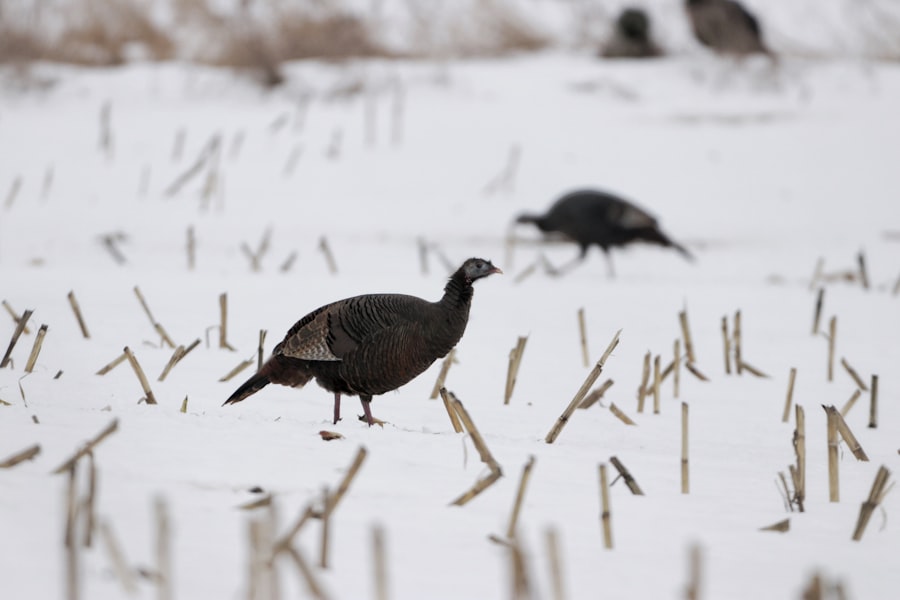
Conservation and management efforts during turkey breeding season are crucial for supporting successful reproduction and ensuring the long-term viability of turkey populations in Michigan. Wildlife agencies and conservation organizations work to protect and enhance turkey habitats by implementing habitat restoration projects, such as reforestation and wetland restoration. These efforts help provide suitable nesting sites and food sources for turkeys during the breeding season.
Additionally, managing predator populations through targeted hunting and trapping programs can help reduce predation pressure on turkey nests and young chicks. Educating the public about the importance of minimizing human disturbance during the breeding season is also essential for supporting successful turkey reproduction.
By implementing these conservation and management efforts during turkey breeding season, wildlife agencies and conservation organizations can help ensure that turkey populations thrive in Michigan for generations to come.
The Significance of Turkey Breeding Season in Michigan
In conclusion, turkey breeding season is a critical time for the survival and conservation of wild turkeys in Michigan. Understanding the natural breeding cycle of turkeys, as well as the factors that affect their breeding success, is essential for supporting successful reproduction and maintaining healthy turkey populations in the state. By observing turkey breeding behavior, implementing effective conservation and management efforts, and raising awareness about the importance of turkey breeding, we can help ensure that these iconic birds continue to thrive in Michigan’s diverse landscapes.
Conserving turkey populations through successful breeding is not only important for maintaining biodiversity and preserving Michigan’s natural heritage but also for supporting healthy ecosystems and providing recreational opportunities for wildlife enthusiasts and hunters alike. By working together to protect turkey habitats and support successful breeding behaviors, we can help ensure that future generations will have the opportunity to experience the beauty and wonder of wild turkeys in Michigan.
If you’re wondering when the turkey breeding season is in Michigan, you might also be interested in learning about the importance of a well-designed chicken coop. Check out this insightful article on chicken coop interior ideas to ensure that your poultry have a comfortable and safe living space. A well-designed coop can contribute to the overall health and well-being of your birds, making it an essential aspect of poultry care.
FAQs
What is the turkey breeding season in Michigan?
The turkey breeding season in Michigan typically occurs in the spring, from late March to early May.
Why is the turkey breeding season important?
The turkey breeding season is important for the continuation of the turkey population in Michigan. It is the time when turkeys mate and lay eggs, contributing to the next generation of turkeys.
How do turkeys behave during the breeding season?
During the breeding season, male turkeys, known as toms, display their feathers and perform elaborate courtship displays to attract females, known as hens. They also gobble loudly to announce their presence and establish dominance.
Are there any regulations or restrictions during the turkey breeding season in Michigan?
In Michigan, there are regulations and restrictions in place for hunting turkeys during the breeding season to protect the population. It is important for hunters to be aware of these regulations and adhere to them.
What should I do if I encounter turkeys during the breeding season?
If you encounter turkeys during the breeding season, it is best to observe them from a distance and avoid disturbing them. It is important to respect their natural behaviors during this critical time.
Meet Walter, the feathered-friend fanatic of Florida! Nestled in the sunshine state, Walter struts through life with his feathered companions, clucking his way to happiness. With a coop that’s fancier than a five-star hotel, he’s the Don Juan of the chicken world. When he’s not teaching his hens to do the cha-cha, you’ll find him in a heated debate with his prized rooster, Sir Clucks-a-Lot. Walter’s poultry passion is no yolk; he’s the sunny-side-up guy you never knew you needed in your flock of friends!

